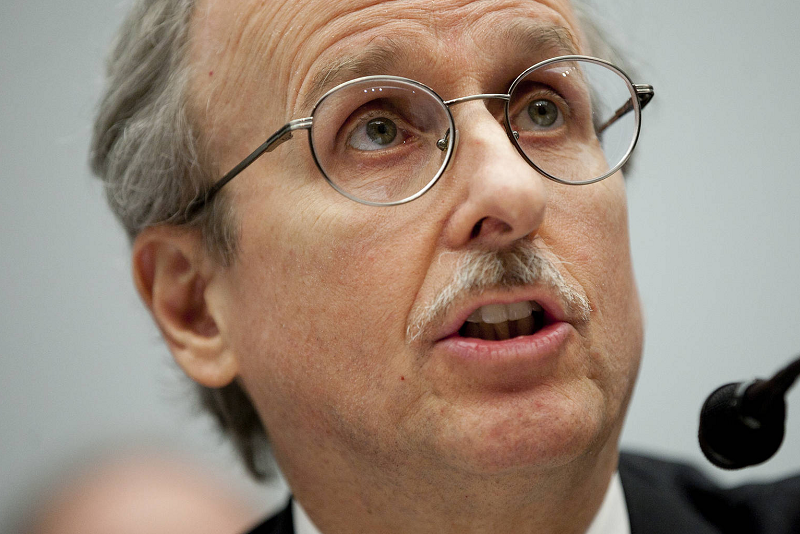BROWSE BY TOPIC
- Bad Brokers
- Compliance Concepts
- Investor Protection
- Investments - Unsuitable
- Investments - Strategies
- Investments - Private
- Features/Scandals
- Companies
- Technology/Internet
- Rules & Regulations
- Crimes
- Investments
- Bad Advisors
- Boiler Rooms
- Hirings/Transitions
- Terminations/Cost Cutting
- Regulators
- Wall Street News
- General News
- Donald Trump & Co.
- Lawsuits/Arbitrations
- Regulatory Sanctions
- Big Banks
- People
TRENDING TAGS
Stories of Interest
- Sarah ten Siethoff is New Associate Director of SEC Investment Management Rulemaking Office
- Catherine Keating Appointed CEO of BNY Mellon Wealth Management
- Credit Suisse to Pay $47Mn to Resolve DOJ Asia Probe
- SEC Chair Clayton Goes 'Hat in Hand' Before Congress on 2019 Budget Request
- SEC's Opening Remarks to the Elder Justice Coordinating Council
- Massachusetts Jury Convicts CA Attorney of Securities Fraud
- Deutsche Bank Says 3 Senior Investment Bankers to Leave Firm
- World’s Biggest Hedge Fund Reportedly ‘Bearish On Financial Assets’
- SEC Fines Constant Contact, Popular Email Marketer, for Overstating Subscriber Numbers
- SocGen Agrees to Pay $1.3 Billion to End Libya, Libor Probes
- Cryptocurrency Exchange Bitfinex Briefly Halts Trading After Cyber Attack
- SEC Names Valerie Szczepanik Senior Advisor for Digital Assets and Innovation
- SEC Modernizes Delivery of Fund Reports, Seeks Public Feedback on Improving Fund Disclosure
- NYSE Says SEC Plan to Limit Exchange Rebates Would Hurt Investors
- Deutsche Bank faces another challenge with Fed stress test
- Former JPMorgan Broker Files racial discrimination suit against company
- $3.3Mn Winning Bid for Lunch with Warren Buffett
- Julie Erhardt is SEC's New Acting Chief Risk Officer
- Chyhe Becker is SEC's New Acting Chief Economist, Acting Director of Economic and Risk Analysis Division
- Getting a Handle on Virtual Currencies - FINRA
ABOUT FINANCIALISH
We seek to provide information, insights and direction that may enable the Financial Community to effectively and efficiently operate in a regulatory risk-free environment by curating content from all over the web.
Stay Informed with the latest fanancialish news.
SUBSCRIBE FOR
NEWSLETTERS & ALERTS
The Most Powerful Man in Washington You’ve Never Heard Of
[Photo: Scott Alvarez, Federal Reserve General Counsel ' Bloomberg News]
Note: The following is taken from an OpEd piece by Peter Conti-Brown assistant professor at U. of P’s Wharton School:
Public discussions of the Federal Reserve usually start and stop with Chair Janet Yellen. Yet, within the Fed’s complex system of people and institutions, few people carry as much authority as Scott Alvarez, the Federal Reserve’s general counsel. The Fed’s chief lawyer is sometimes referred to as an honorary “eighth governor.”
Experts may blanch at that characterization. The theory is that the Fed’s general counsel should have little influence on policy.
Instead he should be a mere technician facilitating the central bank’s work.
Wrong. The Fed’s top lawyer is a policy maker par excellence, whose judgment can direct trillions of dollars and the bank’s extraordinary power. This was true before the financial crisis, as Fed lawyers whittled away the statutory constraints that Congress had placed on financial firms. It was true during the crisis, as Fed lawyers organized the response. And it has been especially true after the crisis, as Fed lawyers designed the new financial regulatory framework. As one regulator put it in 2013, Mr. Alvarez is “a major player in everything. You can’t overstate his role.”
Lawyers were even responsible for the decision to allow Lehman Brothers to collapse, according to former Fed Chairman Ben Bernanke. “We did everything we could think of to avoid it,” Mr. Bernanke wrote in his 2015 memoir. But he said that the law forbade an emergency loan to an institution as far gone as Lehman was. That legal conclusion, however, is far from indisputable—meaning that if Mr. Bernanke’s account is correct, lawyers were driving the policy bus.
How did Mr. Alvarez, who was appointed by the Fed’s Board of Governors, get so much power?
- There is essentially no judicial oversight of the Fed’s monetary-policy making.
- The Fed is dominated by economists ill-equipped to supervise the bank’s lawyers.
- The Fed’s lawyers are so secretive that there is little outside accountability.
And now, Mr. Alvarez is retiring is retiring after 36 years at the central bank. This won’t lead the news, but it should. Mr. Alvarez is one of the most important figures in government.
As Mr. Alvarez exits the job, this combination of expansive power and minimal accountability should make his office ripe for reform. There are benefits from insulating the Fed’s policy making from daily partisan pressures. But insulation can be thick or thin, and the Fed lawyer’s needs trimming.





